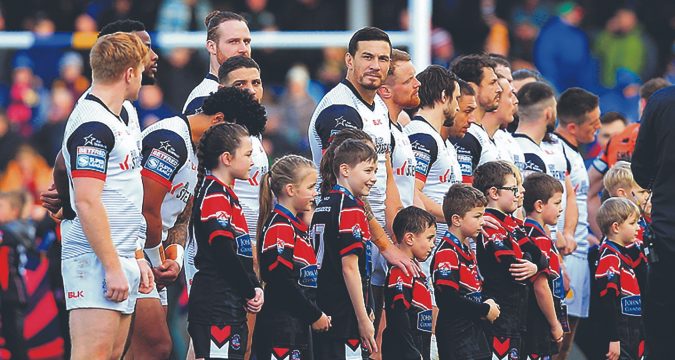 Jon Pallett, the Vice President, Commercial, of Toronto Wolfpack gives his reaction to the decision last week not to re-admit the Wolfpack to Super League in 2021.
The Covid pandemic came at the worst possible time for Toronto Wolfpack, just five weeks before what would have been the team’s first ever Super League home game.
This followed t
Jon Pallett, the Vice President, Commercial, of Toronto Wolfpack gives his reaction to the decision last week not to re-admit the Wolfpack to Super League in 2021.
The Covid pandemic came at the worst possible time for Toronto Wolfpack, just five weeks before what would have been the team’s first ever Super League home game.
This followed t Super League’s lost opportunity in North America
 Jon Pallett, the Vice President, Commercial, of Toronto Wolfpack gives his reaction to the decision last week not to re-admit the Wolfpack to Super League in 2021.
The Covid pandemic came at the worst possible time for Toronto Wolfpack, just five weeks before what would have been the team’s first ever Super League home game.
This followed t
Jon Pallett, the Vice President, Commercial, of Toronto Wolfpack gives his reaction to the decision last week not to re-admit the Wolfpack to Super League in 2021.
The Covid pandemic came at the worst possible time for Toronto Wolfpack, just five weeks before what would have been the team’s first ever Super League home game.
This followed t 